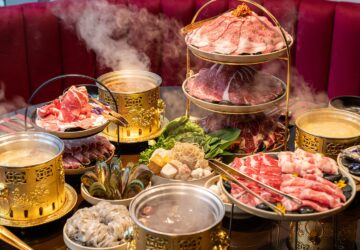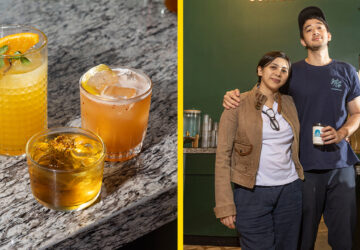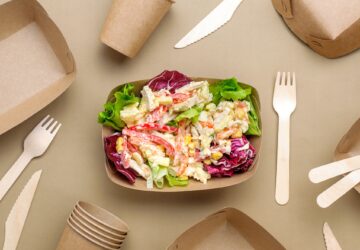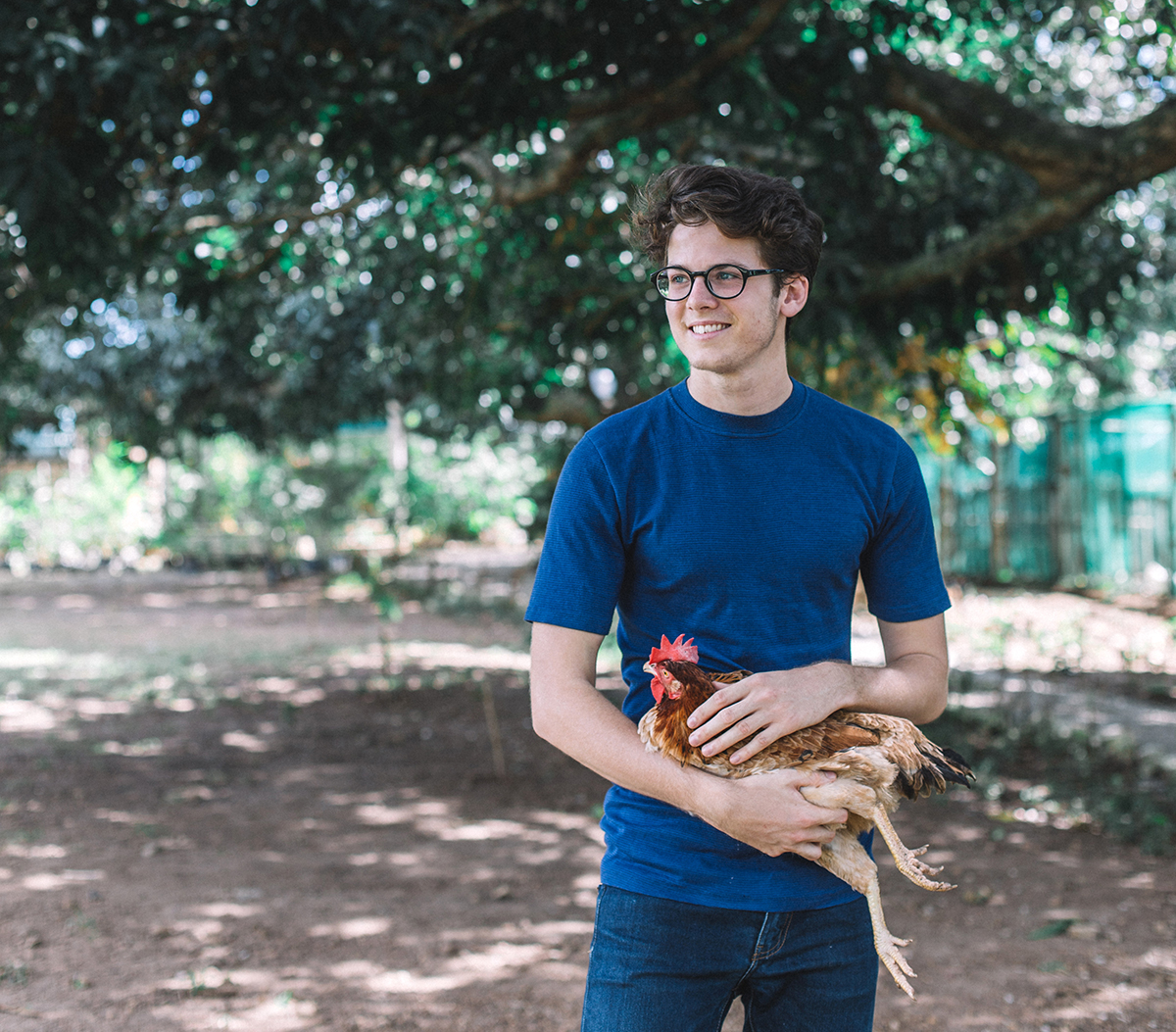Food that comes from farms has to be mass produced in order for the supply to keep up with the demand, but within this usual setup, farmers are the ones who benefit the least. This machinery is something that Gawad Kalinga’s (GK) Enchanted Farm seeks to change by encouraging growth among the least privileged in a sustainable system where everybody benefits: from the producer, who gets a bigger profit from homegrown products, to the end consumer, who is now given more choices with wholesome and high-quality artisanal items on store shelves.
The success of Human Nature, another GK project, is one that the social entrepreneurs based at the Enchanted Farm seek to replicate. The cosmetics and personal products company, with its credo of providing items that are pro-Filipino, pro-poor, and pro-environment, has gone international, moving a step closer to its vision of ending poverty for five million Filipino families by 2024 by providing employment to GK beneficiaries.
The Enchanted Farm in Bulacan bills itself as the Silicon Valley of social entrepreneurship. It now has several businesses in different stages of development and its land now encompasses a farming village and a university that seeks to develop young talents in the field of entrepreneurship, highlighting social awareness and responsibility. The concept has gained support not only from multinational companies and the bright young minds of Manila but also from unexpected sources.
Louis Faure: The French farm boy
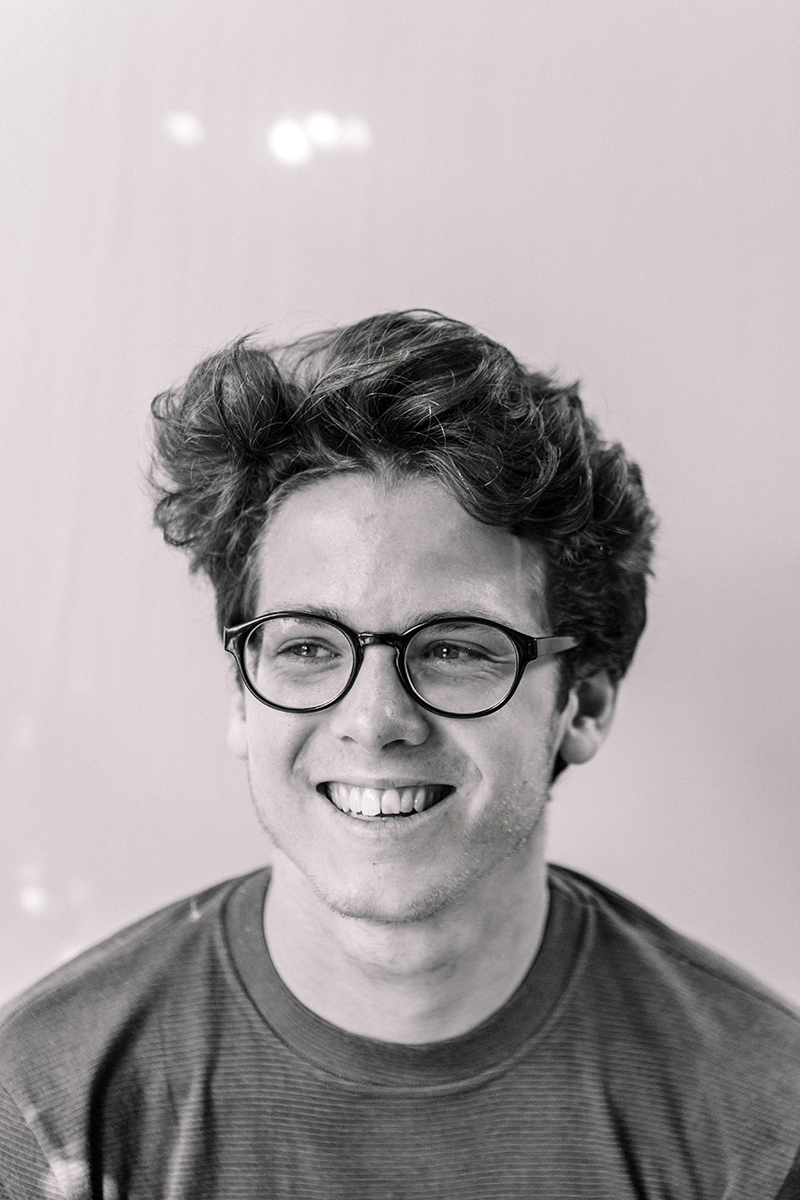
Louis Faure had a bright future ahead of him in his native France where the 21-year-old was accepted into a university that schools industry leaders and government heads.
“In my first day in business school, the dean told us that we are going to run the country. It is an elite school where the top CEOs and our current president studied. I went there because I wanted to become an entrepreneur,” he says. It was all about the business of making money and getting the highest profit, and there was even a class on how to hire the best people so a business would have lower chances of getting brought to court.
But Faure got bored. He slept in class and found himself setting up a grocery store on campus, joining musical plays, and doing boxing instead of hitting academic books.
“As soon as I arrived here, I felt like I was home,” says Louis Faure. “This feeling grew, and at the end of my six-month internship, when Tito Tony saw that I was not going to leave, he said ‘Now, I am going to invest in you.’”
Before coming here, he knew nothing about the Philippines, except that it has a rising economy. A traveler he met while on a trip to Thailand was the one who pointed him this way. “He told me that Filipinos were that happiest people he had ever met, so I went here for my internship. Nothing was planned. I didn’t know about GK, I didn’t know Tito Tony (Meloto, GK founder); everything was pure intuition.”
Faure has been here for a year and two months and says he has no plans of leaving. “As soon as I arrived here, I felt like I was home. This feeling grew, and at the end of my six-month internship, when Tito Tony saw that I was not going to leave, he said ‘Now, I am going to invest in you.’” Meloto started bringing the young, driven man to strategic meetings with CEOs and department heads to let him see the scale and magnitude of the work that needs to be done.
Chick magnet
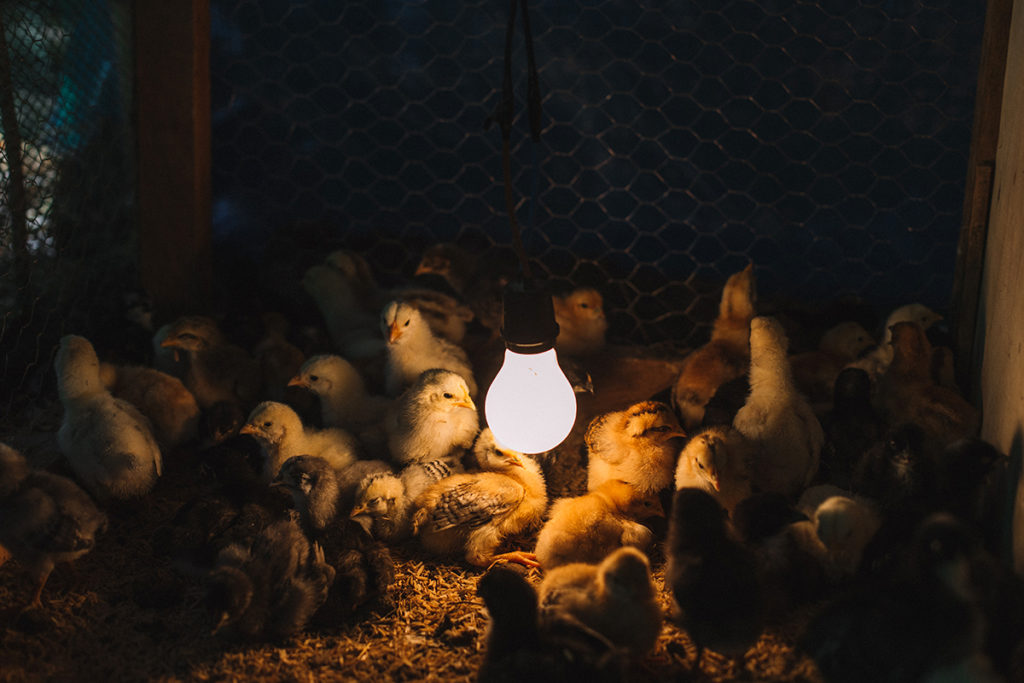
The former Parisian now wakes up at the crack of dawn, tending to his chicks, fretting when one of the birds gets sick. “This piece of land used to be a mango farm. It’s about one hectare and when we got it, we were thinking about how to make it profitable.”
Faure thought of raising small livestock, particularly chickens as they consumed the least food among livestock animals. Plus, in times of calamity, farmers could more easily transport egg-laying hens than a carabao or a cow.
His are no ordinary chickens though as he breeds native ones sustainably. Poultry farms rely on Cobbs stock as it grows at a faster rate, but there are several drawbacks to this breed: one, the genetics is copyrighted by an American company, and two, it is not hardy, needing antibiotics and intensive care in order to survive.
“It’s all about understanding how nature works. We tend to forget that nature gives solutions to our problems. Any businessman looks at how to make his farm or poultry profitable, buying what he needs from outside. Farmers don’t have that capital, but what they can invest in their land is time—time to learn how to make it more profitable,” says Louis Faure.
“The native chicken has been around for a long time yet is not commercially bred anymore because it takes longer to reach a desired weight.” Faure is currently trying to breed the best native stock and is raising his chicks organically, planting medicinal plants like oregano and lemongrass in his farm for the chickens to feed on and offering them protein from silkworms that are cultivated in the vicinity.
He has not really sold his chickens at volume yet as he needs to grow his stock first; most of his birds are used at the Farm’s Living Kitchen, which feeds students at the university. He and fellow Frenchman Victor Beulque have recently gone to town, though, selling Faure’s chickens and Beulque’s ducks to the French embassy, where buyers are willing to pay a higher price for organic poultry rather than those found at the palengke.
There are other applications for organic strategies at the farm, where they teach environmentally sound techniques to maximize every hectare of land given to farmers under the Land Reform Act. Going back to nature is not only good environmental sense but also good business sense, as it’s about growing crops with a good yield while building an ecosystem where farmers can grow their own pesticides and fertilizer.
“Mono-cropping does not exist in nature,” Faure explains. “It’s all about understanding how nature works. We tend to forget that nature gives solutions to our problems. Any businessman looks at how to make his farm or poultry profitable, buying what he needs from outside. Farmers don’t have that capital, but what they can invest in their land is time—time to learn how to make it more profitable.”
His wish is for the Philippines to become food-sustainable, no longer importing any of its produce.
Planting seeds of hope
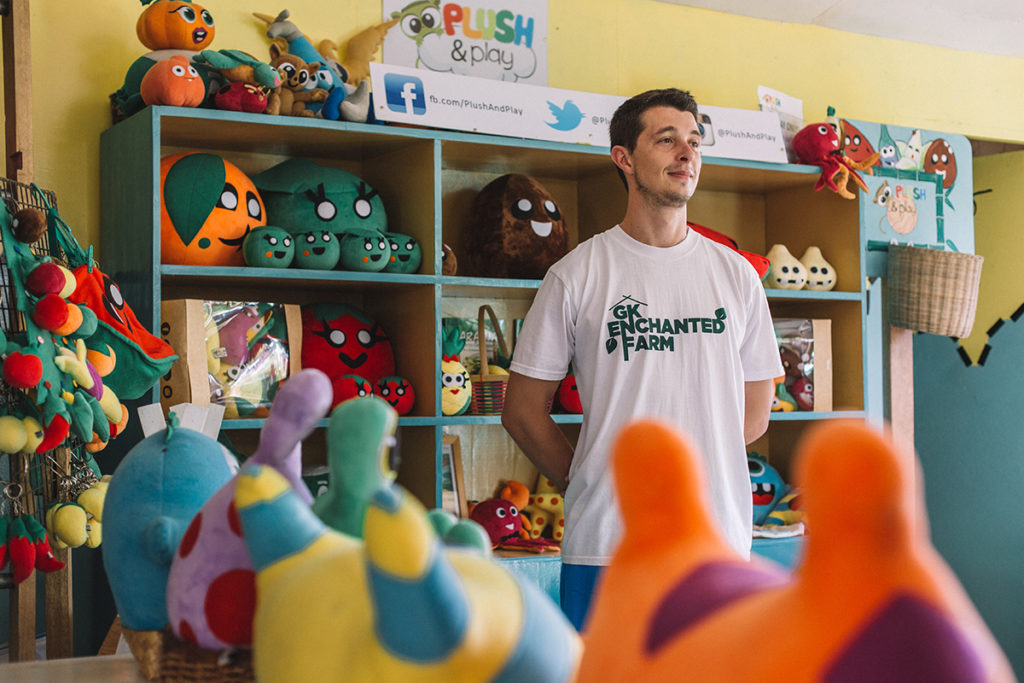
Land and manpower are the Philippines’ greatest resources. Unfortunately, they are both underdeveloped, Faure realized. This is where Gawad Kalinga comes in as a catalyst, where both become more productive with the help of those who have the competencies and the capital.
“What we can do is get entrepreneurs from top local universities from other countries and match their competencies with those of the poor.” He cites himself as an example. “It would take somebody here half the time to repair a fence than I would because they know how. As somebody coming from a country where everything is disposable, I would not know what to do. That is why we need to bridge core competencies and eventually raise Filipinos from the barangays to become entrepreneurs, through the SEED University.”
He likewise talks about how trained entrepreneurs know how to look for opportunities. When Fabien Courteille, another French intern, came to the country, he saw the sheer number of Filipino children and saw in them a market for toys, specifically one that plays on local humor and culture. He has since launched Plush and Play, with stuffed toys named Manny Pakwan and Buko Martin. The items are sewn by the women in the community and are now found in major toy stores beside imported toys.
“It would take somebody here half the time to repair a fence than I would because they know how. As somebody coming from a country where everything is disposable, I would not know what to do. That is why we need to bridge core competencies and eventually raise Filipinos from the barangays to become entrepreneurs, through the SEED University,” says Louis Faure.
But everything is still a learning experience for Faure. “People come up to me with questions about raising poultry, asking me to teach them. I then say, I cannot teach you because I do not know much about it myself.” Still he plods on. “I don’t party in Manila. I have no girlfriend. I have my chickens. If somebody told me a few years ago that I would be doing this, I would tell them that they were crazy.”
The student who used to shirk school work now finds himself working 80 hours a week with no days off. “I like it here simply because there is a vision and also because I have the greatest mentor. When you find a mentor like him, you don’t need anything else.”
The mentor and his game plan
GK founder and management engineering graduate Tony Meloto’s beginnings are similar to Faure’s in that he now questions what he had learned in school; the mindset then was to work in a global corporation after graduation. “This got me thinking. I was a poor boy who was given the opportunity to study at Ateneo, the opportunity to work in a big company. We can educate some of the students, but what about the thousands who were left behind?”
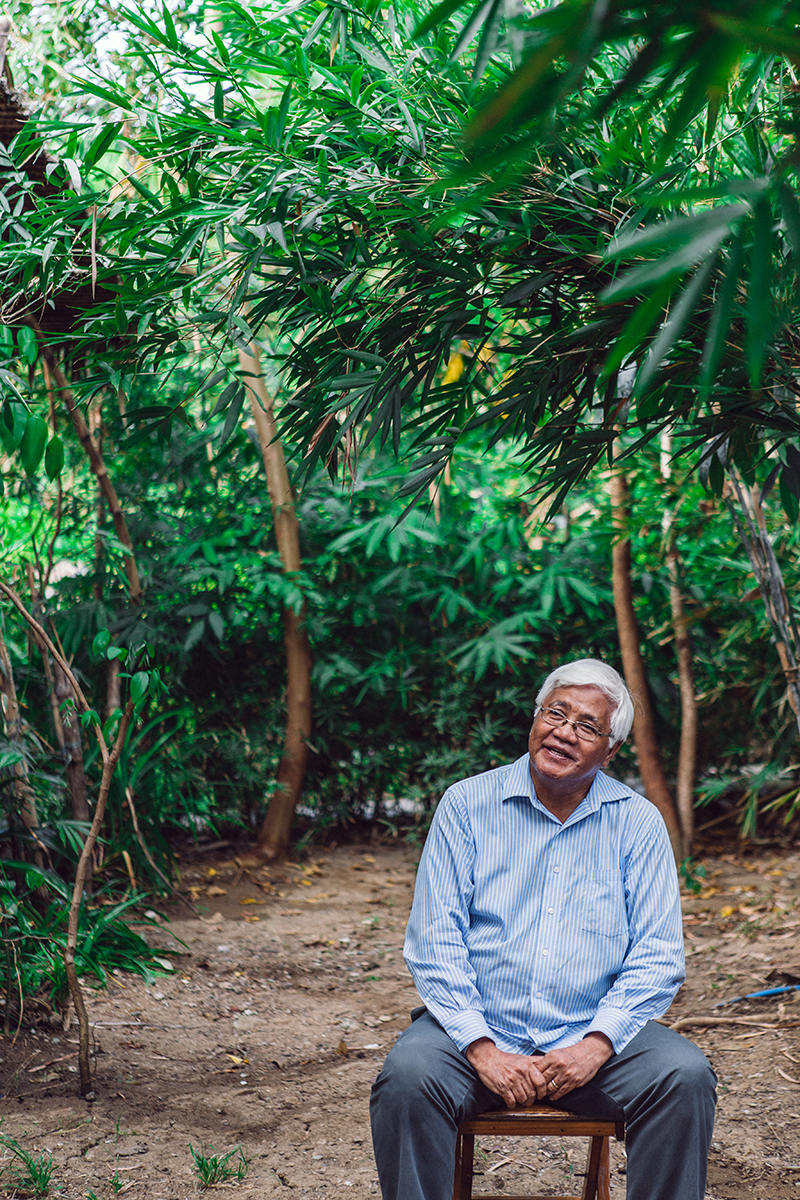
He talks about the usual approach to poverty, which he calls “the bottom-up philosophy,” where the poor are always seen as objects of charity. “Unless we see the poor as family, we will always give them limos (alms). They will always be our maids and our drivers. They will be the ones who could burst our bubble of security outside our exclusive villages and exclusive schools for our children. Because the squatters, they live just outside the gates.”
To help the poor step up their game, Meloto offered them housing. The men who built their homes with sweat equity in Gawad Kalinga Villages were also given values formation, which he says is the first building block towards human dignity and self-respect. “We helped them look for jobs. If you live in an environment where the mentality is isang kahig, isang tuka and kapit sa patalim, what is your motivation to become productive?”
“Unless we see the poor as family, we will always give them limos (alms). They will always be our maids and our drivers. They will be the ones who could burst our bubble of security outside our exclusive villages and exclusive schools for our children. Because the squatters, they live just outside the gates,” says Tony Meloto.
Another aspect is that Manila is becoming more crowded because more and more people move to the city to look for jobs. What he is doing is bringing jobs to the countryside via Enchanted Farm, which is now also present in the provinces of Capiz, Davao, and Bacolod. The Farm offers its communities means of livelihood by building businesses that match the skills both of those who have the competencies and those who are unschooled.
Getting graduates from top universities to invest time and effort in social entrepreneurship can be a challenge, as this is not the normal career path after finishing studies in exclusive schools. Most, too, would be dissuaded by their families. Meloto’s solution is to turn to branding and getting a little help from foreign shores.
“It’s about changing mindsets. We were raised to think that imported products are good, that lighter skin is superior to our own. What I did was to invite students from top universities abroad to work here. This has encouraged more local graduates to come to us, first out of curiosity as they try to figure out what these foreigners are seeing in us.”
Then, he adds, GK develops their own entrepreneurs from the grassroots level. “If it is hard to find social entrepreneurs from among our top university graduates, then we will train our own.”
They are concentrating on incubating food businesses because, as he says, food never goes out of style. This is a big help to the economy too, as the movement catches fire. “It’s about developing our own value chain. If you farm peanuts, make peanut butter. If you planted basil, make pesto. If you raise pigs, don’t sell them; make ham instead and sell that. Instead of selling our products to be processed elsewhere, why not make processed products ourselves and make them world-class?”
Meloto has it all figured out, and as Enchanted Farm proves, his theories actually work. Now, it’s only a matter of breeding the system and getting more people to get into the game.
Originally published in F&B Report Vol. 13 Issue 1
